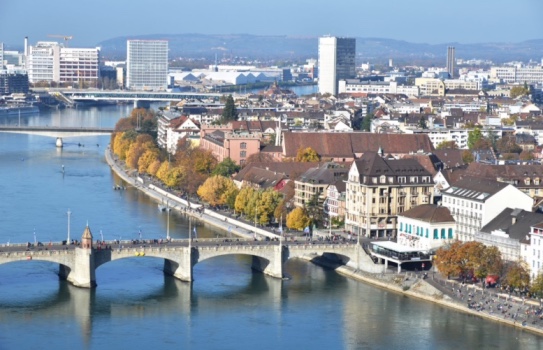Having a second home or secondary residence is not just an option for commuters, but also for students or tourists from abroad who want to settle in Switzerland for vacation purposes. If you do decide to apply for a secondary residence in Switzerland, there are a few (legal) things that you should consider first.
- What is a second home/secondary residence?
- Registration of the second home
- Second-home tax Switzerland
- Second-home in Switzerland as a foreigner
What is a second home/secondary residence?
First of all, a second home or secondary residence in Switzerland is normally only permitted as a “weekly stay” due to the principle of “unit of residence”
This means that a person who occupies a second residence in the country during the week, for example for the purpose of work or further education, is considered a “weekly resident”.
Under these rules, the person will have a main residence outside of Switzerland, and their second home or weekly stay is one for the purpose of education, employment or training during the week.
Alternatively, the residence you stay at during the week could also be someone’s main residence, whereas staying in a holiday home at the weekend is considered a second home.
It’s not always easy to assess which place of residence is considered the “centre of life” and the main residence, it can depend on marital status, age, type of apartment, duration of employment at the place of work, duration of the weekly residence relationship, etc.
In summary, where the centre of life is – where you work and spend most of your time – is the main residence. Various rights and obligations, such as the right to vote or tax liability, are linked to these. Detailed information on the subject of “week stays” can be found here.
Registration of the second home
Moving into a secondary residence or a one-week stay is subject to registration in Switzerland. This must be reported to the residents’ registration office either in person or online no later than 14 days after moving into the second home. The registration fee is CHF 20.
To register your second home, you need to bring a valid ID with you and an identity card or passport. Your ID card will then stay with the authorities and the weekly resident will receive a residence card in return, which must be returned when you move away.
Second-home tax Switzerland
The taxation of a secondary residence in Switzerland works like that of the main residence. The tax is levied by each region in which the residence is located.
For tax purposes, a second home is considered “income in kind” and is taxed on the basis of its rental value – that it’s calculated based on the rent that could be earned if the property was rented out.
If the second home is actually rented out, income tax must be paid on the rental income. In return, the taxation of the rental value is suspended for that period of time.
You can find more information on this topic here.
Second-home as a foreigner
For many foreigners, especially Germans, Switzerland is an attractive country to invest in holiday real estate. However, a second home is often registered in Switzerland for work purposes. As is the case for Swiss citizens, second homes that are occupied by foreigners must be registered.
If you stay in the country for less than 90 days as a non-employed person (tourist or pensioner), you don’t need to apply for a separate residence permit. However, if you want to stay longer in Switzerland, you have to prove that you have sufficient financial means to make a living.
Since Switzerland is not a cheap country to live in, you should carefully consider this option in advance.
If you’re staying longer, you’ll also need to arrange health and accident insurance, which provides you benefits within Switzerland. You only have to pay taxes if you also earn income from work in Switzerland or if you stay there for more than 6 months a year. If this is not the case, you are considered a so-called “foreign taxpayer”.



